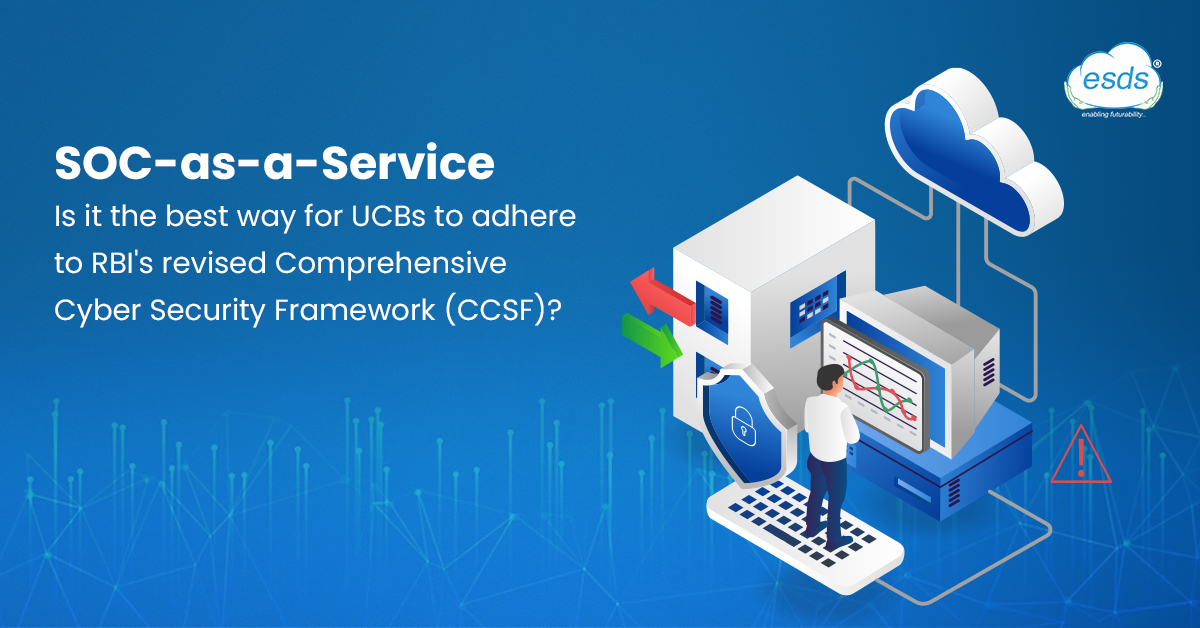The Reserve Bank of India (RBI) has recently revised its Comprehensive Cyber Security Framework (CCSF) to improve the cyber security of banks, particularly the Urban Co-operative Banks (UCBs). The revised framework highlights the need for UCBs to adopt the SOC-as-a-Service model to ensure compliance with the new norms.

What is SOC-as-a-Service?
SOC-as-a-Service is a managed security service that provides continuous monitoring and analysis of an organization’s security posture. The service is delivered through a Security Operations Center (SOC) which is manned by security experts who use a combination of technologies, processes, and expertise to monitor the security of an organization in real-time.

Can SOC-as-a-Service be the best solution for all UCBs?
Security Operations Center (SOC) as a Service can be a cost-effective solution for primary (urban) cooperative banks (UCBs) to adhere to the new Reserve Bank of India’s (RBI) Comprehensive Cyber Security Framework (CCSF), but it is not necessarily the best solution for all UCBs. It depends on the specific needs and resources of each individual UCB. SOC-as-a-Service provides UCBs with access to a team of security experts who can monitor and manage the bank’s security systems and respond to security incidents on a 24/7 basis. This can be especially beneficial for UCBs that lack the resources or expertise to effectively manage their own security operations.

Additionally, SOC-as-a-Service can be quite costly for UCBs, particularly for smaller banks with limited resources. These banks may prefer to implement more cost-effective security solutions, such as using security software and services, rather than outsourcing their security operations. In short, SOC-as-a-Service can be a cost-effective solution for some UCBs to adhere to the new RBI CCSF, each bank should evaluate their own specific needs and resources and determine the best solution for them to adhere to the new framework.

No comments:
Post a Comment